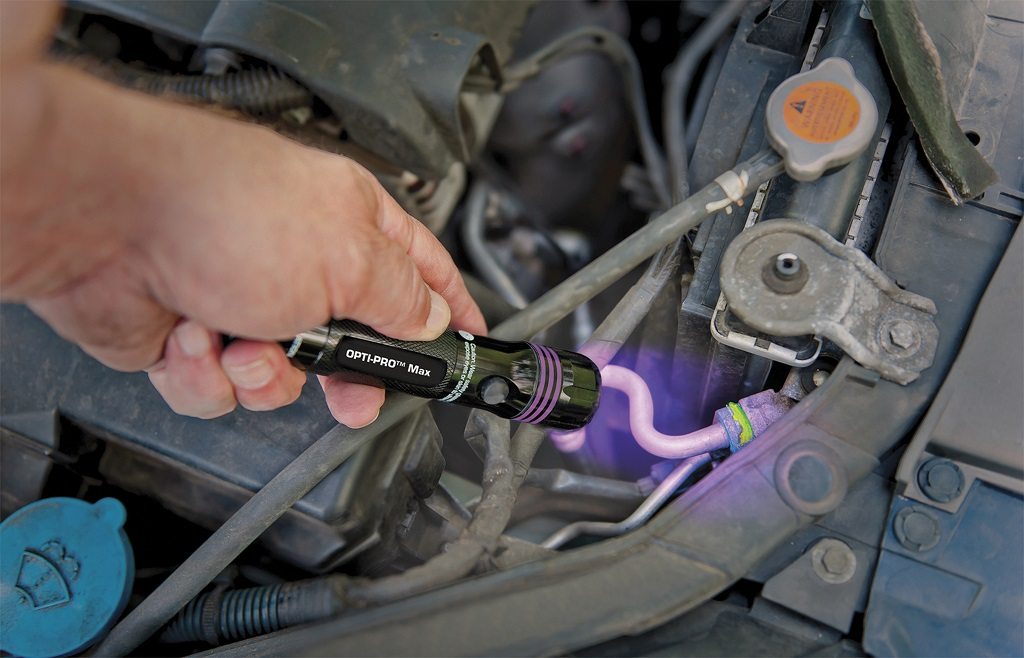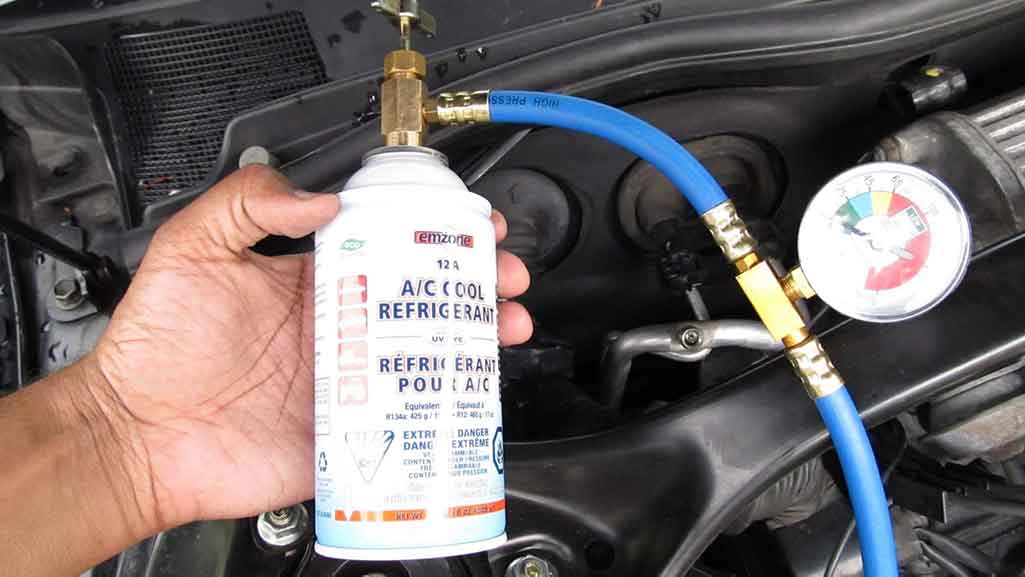The air conditioner in your car is a great way to keep cool on hot days. However, if you notice that the fan is constantly blowing but not cooling down the car, there could be something wrong with the air conditioning system, especially with the Freon level. Let’s find out the problems stemming from low Freon for car and how to fix Freon leaking out of an air conditioner.
What Are the Symptoms of Low Freon for Car?
Lack of refrigerant mainly causes two kinds of problems. Firstly, without enough refrigerant in your A/C unit, it cannot absorb heat from inside the vehicle as it should. Secondly, because there isn’t enough gas circulating through the system, parts of it can overheat and cause further damage.
As a car owner, you should be alert for the symptoms, so the lack of sufficient Freon in the system cannot cause any bigger damage. Some of the common signs of low Freon in car AC system are:
1) Loss of cooling temperature
How to tell if Freon is low in AC car? If the car interior starts heating up rather abruptly despite the A/C is on, you should check the level of the cooling refrigerant. It may also cause the vehicle to take longer to cool down. When this happens, the A/C will blow room temperature air. If there is no apparent leak, recharge the AC system with Freon to fix this issue.
2) Visible leaks from the car AC system
The level of Freon for car could be low because of a leak in the system. It could be due to worn out seals, rusty fittings, and cracked or damaged hoses. When Freon leaks in cars, you may find it inside the cabin, around the compressor, or on the AC lines. It looks like thin liquid-ish grease that should not be hard to spot.
You may also notice cloud-like emissions from the leaking spot. An audible hissing sound too may come out of the compressor.

3) The car A/C clutch does not engage
Turning on the A/C system causes a distinct sound that comes from the engagement of the clutch. It’s the clutch that makes the compressor pressurize the Freon to convert it from gas to liquid. No sound means that the clutch is not activated, which is one of the symptoms of low Freon in car air conditioner. The clutch does not work until the Freon in the tank is at a certain level. So, it won’t engage if the level is low.
4) Ice on the compressor
Another way to be sure about a low Freon level is when you detect ice on the A/C system compressor. It happens when the Freon level becomes low and moisture takes its place in the tank.
5) Low gauge readings
If the car’s A/C system does not work properly and you want to find out whether low-level Freon is the source of this problem, use an A/C manifold gauge. Connect it to the low and high service ports and take the readings. By using it, you can easily find out whether your car AC recharge is necessary or not.
What to Do When Freon Level Is Low?
As you can see, low levels of Freon will cause all sorts of problems with air conditioning and heating systems in your car. The good news though, is that there are several ways to fix this issue without getting into too much trouble or expense.
Add refrigerant to the A/C system
How do you know if your car AC needs recharged? When it shows the signs mentioned above.
The most common way to fix a low-Freon issue is by adding refrigerant into the air conditioning system. Buy a Freon recharge kit and read the instructions to know about the right way to recharge.
SEE MORE
Take the car to a technician for repairs
If there is a leak or damage to a component, you should take the service of an auto repair shop. They can find out what is ailing the system and which part needs a fix or replacement.
If the system just needs a recharge, the repair shop will do that and bring your car’s air conditioner back to life. Taking prompt action as soon as the problems occur may save plenty of money down the road.
Conclusion
You will need Freon for car when the A/C system shows the low-Freon symptoms. The best way to stay out of trouble is to take the car to a local technician periodically for a thorough checkup. S/he will know exactly what needs fixing or changing, how much Freon is required for the job, and fill everything back up for you.



